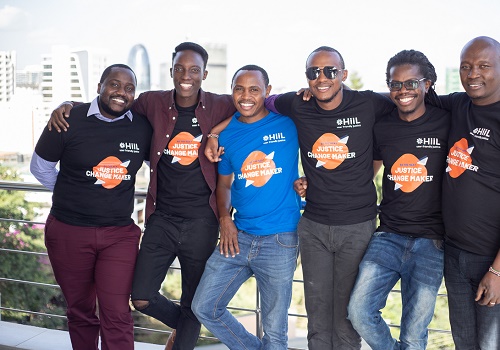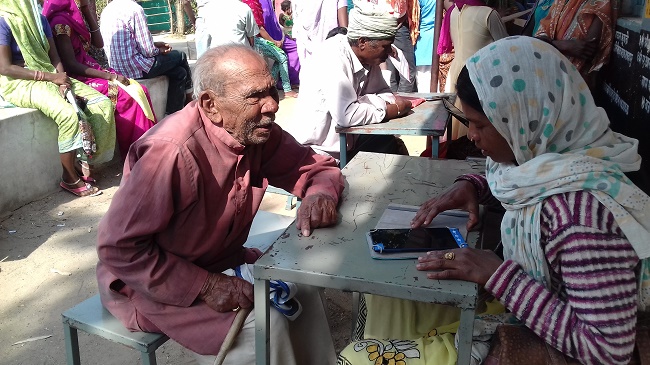Entrepreneurial dynamism within the private sector needs to be harnessed, and drive change in what has traditionally been public sector responsibility. We need to shift our thinking and welcome (and fund) this innovation.
Why better justice?
Justice is the foundation for better societies – when citizen’s justice needs are met there is social cohesion, prosperity and better governance. Currently justice systems are overburdened and underfunded. People don’t get the justice they need. We at HiiL call this the justice gap. But that’s not a phrase that is common knowledge. When I ask people, “Hey have you ever heard of the justice gap, people say ‘no’, ‘what’?” It isn’t on their radar.
The reality is, there’s such a big ask for better justice. Today,1.5 billion people globally have a justice problem which they cannot resolve. Formal justice systems are overburdened and not fulfilling their promise of delivering justice, despite the hard work of so many. And carrying on with more of the same ‘business as usual’ approach will not solve the problem. We need new ways of working.
People-centred justice programming
HiiL works with governments and partners in countries around the world to co-create and implement people-centred justice programmes. The way we work is: we start with the collection of data on citizens’ legal problems, we then analyse best practices to solve them, we scale game-changing innovations, and work with a broad range of stakeholders on an enabling environment. This approach is built around people and the justice outcomes they need. It is effective, do-able, cost-efficient, and has immediate as well as long-term value. It is a win-win approach for justice practitioners and citizens that helps strengthen rule of law.
So where does tech fit in?
We have all the tech in the world and within that a burgeoning AI industry. My challenge is this: How do we, in the next couple of years, get to a situation where justice is really at your fingertips and incredibly affordable for everybody? This is where startup support programmes like our Justice Accelerator play such a crucial role.
Justice and technology are already coming together in an unprecedented way. But more innovation is needed to combat a wide range of justice issues – from employment, family, land, housing, small businesses to public services – so that we can bridge the gap and create user-friendly solutions that tackle the urgent global need for better access to justice.
Justice-tech
Young tech entrepreneurs might not be the solution that first springs to mind when you think about how justice can be more readily available for all. But there have been some significant innovations in the last few years that really have had incredible, scalable impact. A brilliant example is Haqdarshak, a welfare claiming platform that we supported which is literally changing people’s lives. They are now present in 24 states in India and have trained over 30,000 community workers providing benefits to over 2.7 million families.
Another example is Sidebrief from Nigeria, who have supported over 6,000 small businesses on the full range of legal matters: from easy registration, tax compliance to automated contracting. Platforms such as Lexyom (UAE) and E-arbitrator (Rwanda) provide a smart marketplace for legal professionals and people looking for help, and companies like Peleza (Kenya) and iVerify (Nigeria) make access to housing and employment fraud free with their identity and KYC technologies. And we know there are many more out there, as we have supported over 170 justice-tech startups to date.
Because of constant financial pressures, lack of availability of in-house expertise and also the scale at which they must operate, the public sector has often struggled with digitising and upgrading systems. That certainly doesn’t mean you need to privatise everything but it does mean you can rethink how you serve your citizens well and open collaboration with the private sector. New justice services from the private sector, such as Haqdarshak and Sidebrief, can help prevent disputes from ever having to reach courts and therefore lowering the pressure on the justice system.
So how do we move swiftly towards a more just future?
HiiL has a clear vision of the change that needs to happen and wants to work with organisations and institutions that have a common understanding. Those who understand the new field of justice tech and its potential for scaled impact. If we can bring on board justice startups, practitioners, entrepreneurs, thought leaders and investors we can create powerful stories and breakthrough solutions. The latter is urgently needed to tackle the global challenge of people not having access to justice.
Tech can bridge that gap, focusing on what people need so they can get on with their daily lives. This will bring greater social cohesion and prosperity across the globe leading to better societies.
I don’t think there has ever been a time where access to well-functioning justice systems has been as crucial. Our world has changed rapidly since 2020. The pandemic, economic crises, and social upheavals have widened the justice gap globally. We need to collaborate and work alongside the formal system. The innovations we mention here are gamechangers. And they really are that. Are you ready to play the game?
Ronald Lenz, Director of the Justice Accelerator and the MENA region at The Hague Institute for Innovation of Law (HiiL) is on a mission to drive forward innovative tech to enable access to justice for all. Ronald runs the HiiL Justice Accelerator: a training and seed-fund programme for startups that transform the justice sector.
Ronald is speaking on this topic at SOCAP in San Francisco Oct 23-25.



